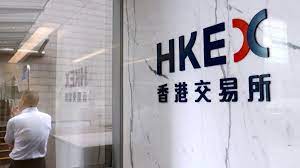Could Chinese IB business be brought to an abrupt end? Chinese government has busted $64 billion underground banking industry to clamp down on illegal capital outflows
A taboo subject among many senior executives in the FX industry is the method by which retail customers in China can deposit directly, or via IBs, into client funds accounts of brokerages outside China. China represents a vast proportion of retail FX order flow for western FX brokerages, and in some cases over 80% of […]

A taboo subject among many senior executives in the FX industry is the method by which retail customers in China can deposit directly, or via IBs, into client funds accounts of brokerages outside China.
China represents a vast proportion of retail FX order flow for western FX brokerages, and in some cases over 80% of business comes from the mainland, despite the communist government’s very strict capital control laws which forbid citizens to conduct business with foreign entities or to send their funds to firms abroad.
As last week drew to a close, the Chinese government uncovered the largest underground banking business in Chinese history, which involved transactions totalig $64 billion (410 billion yuan).

FinanceFeeds has researched the Chinese methodologies very closely and has spent considerable amounts of time with China’s large IBs across the entire country, and as a result fully understands the necessity of having a good gateway that provides a facility to send customer funds to brokers overseas.
The Chinese government’s internet police department employs over 2.4 million government officials, and the authorities know exactly what transactions are being conducted and by whom, as the censorship and monitoring of transactions and internet use is very accurate and detailed indeed. In essence, the government knows that large, multi-million dollar IBs are sending funds abroad, and keeps tabs on it but does not act.
Similarly, if a client complains that they have been mistreated by a broker outside China, there is not a single thing that the Chinese authorities can do about it as, in keeping with communist ethos, they only have jurisdiction over domestic affairs and will happily explain that this is the fault of the customer for daring to send funds abroad.
The investigation into the underground banking organizations which were sending funds abroad began in September this year, and focused on the costal province of Zhejiang. It found that dozens of Hong Kong-registered companies forged more than 1.3 million fake transactions to transfer money offshore. Indeed, the Hong Kong-based companies were effectively shells with no physical office.
New Zealand used to be a popular destination for this practice, with many supposed FX companies having listed themselves on the Financial Services Provider register in order to transfer funds to New Zealand and give customers the impression that they had an office in a Western, free market country.
When the Financial Markets Authority was formed, it immediately set about de-listing several hundred of these firms, ruling that they were shells and that offices in New Zealand should have physical presence including a compliance department.

China started cracking down on underground banks in April and has so far uncovered more than 170 cases of money laundering and illegal fund transfers, involving more than 800 billion yuan ($125.34 billion). The cases come as capital outflows reach hundreds of billions of dollars, triggering alarm in some circles.
The question is, with FX IBs with over $50 million in assets under management and businesses worth in some cases more than $200 million, the authorities may well crack down on these too, the reason being that, unlike Western FX brokerages, all of the Chinese firms are IBs which means that if a particular company has $50 million, for example, in assets under management, it means that company has sent $50 million of Chinese customer funds to an overseas brokerage.
Should this be the subject of a crackdown by Chinese authorities, it would most certainly create a massive hole in the profits of many western companies who rely on China’s IB network for their client base.
Recently, FinanceFeeds discovered that certain banks and exchanges within China are looking at offering a partnership with IBs so that the government can own part of the trading cycle (we are certain that the free regulation of FX will never happen in China), and therefore cracking down on what the country considers to be illegal capital outflows would be a very effective method of getting all of the IBs to place their business with Chinese government owned banks or exchanges, and pave a way for Western technology and prime brokerage firms to partner with Chinese exchanges to gain order flow, thus dealing directly with the Chinese government rather than through free market-style partnerships that the government cannot control.

In the case of the unauthorized banks, it has been stated by the Xinhua News Agency that the main suspect used non-resident accounts to facilitate more than 14,000 counterparties for the transfer of billions of yuan offshore. Another Chinese news source, the People’s Daily, stated that 21 counterparties’ bank accounts illegally transferred more than 1 billion yuan overseas and the suspect used the inability of some onshore commercial banks to identify non-residential accounts to help his operation.
Clients were asked to transfer yuan to domestic accounts and the money was then transferred to non-residential accounts the suspect controlled. Those accounts were then used to buy foreign currency with forged trade transactions, and directly funnelled the cash to offshore banks in Hong Kong and elsewhere, a similar method to that used to transfer funds to FX firms.
It has always been well known to all FX firms that in theory, it is not lawful from the Chinese government’s point of view to conduct business with Chinese customers wishing to transfer their funds abroad, yet many have concentrated so heavily on it that the Chinese retail market has become the mainstay of their business. Without a contingency plan in place, a quick decision by the Chinese government could this which, although will not come as a surprise, would cause a considerable protraction in revenues and the need to refocus for many.
Featured photograph: The KK100 tower, Shenzhen, China.









